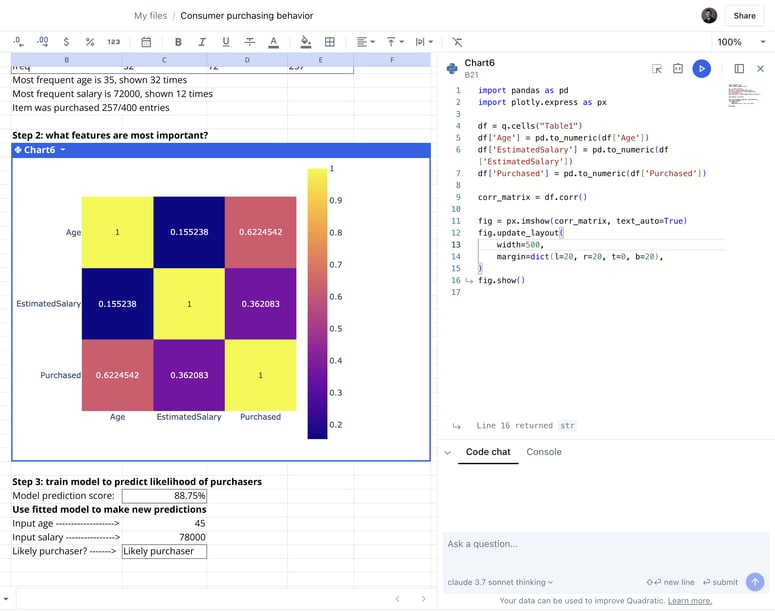In the cryptocurrency market, tokens play an important role in shaping the future of the digital economy. This article will dive deep into, What exactly a token is and how it plays a vital role in the digital economy? We will also explore why they are crucial for the blockchain ecosystem.
Whether you’re a startup or a crypto enthusiast, having a clear understanding of token definition is essential.
So, let’s get started!
Introduction to Tokens and Their Importance
In the landscape of cryptocurrency, tokens serve as digital representations of value, utility, or ownership within a particular ecosystem. These digital assets are created through smart contracts, self-executing contracts with terms directly written into code. Unlike cryptocurrencies like Bitcoin or Ethereum, tokens function on pre-existing blockchain networks, utilizing the technology's features to provide diverse functionalities.
Tokens hold immense significance beyond their technological foundation. They act as the backbone of decentralized systems, facilitating transactions, supporting decentralized applications (DApps), and driving innovative financial models.Tokens come in various types and each is categorized based on its functions within their respective ecosystem. The main types include utility tokens, security tokens, and governance tokens, asset tokens, stablecoin etc.,
What is Crypto Token ?
A blockchain token is a digital asset, right, or value representation that functions within a blockchain network. Its programmable features, security, and decentralized nature provide versatility, making it suitable for various applications. Tokens can represent anything from loyalty rewards to digital currency, enabling seamless peer-to-peer transactions while eliminating intermediaries.
Blockchain tokens are primarily categorized into fungible tokens (FTs) and non-fungible tokens (NFTs). Understanding these distinctions is essential when exploring different types of blockchain tokens.
Blockchain tokens are generally categorized into fungible and non-fungible tokens (NFTs), as explained below:
Fungible Tokens
Fungible tokens are interchangeable units of value. For example, one Bitcoin holds the same value as another Bitcoin. These tokens are widely used in blockchain ecosystems for transactions, investments, and as a medium of exchange.
Non-Fungible Tokens (NFTs)
In contrast, non - fungible tokens are unique and cannot be exchanged on a one-to-one basis. Each NFT represents a distinct asset, making them ideal for applications such as digital art, gaming items, and real estate tokenization.
Types of Tokens
Utility Tokens:
Utility tokens are the most common type of token in the crypto space. They are developed to provide users with access to a specific product or service on a blockchain ecosystem.
Security Tokens:
Security tokens signify ownership of tangible assets like real estate, company shares, or commodities. Unlike utility tokens, they fall under securities regulations, as they serve to digitize conventional financial instruments.
Governance Tokens:
Governance tokens are cryptocurrencies that give holders the right to vote on decisions within a blockchain project or decentralized platform. These decisions can include protocol upgrades, fee structures, or other important changes. The more tokens a person holds, the more voting power they usually have. Governance tokens help keep decentralized projects community-driven and transparent.
Asset-Backed Tokens:
Asset-backed tokens are digital tokens that derive their value from real-world assets such as real estate, precious metals, commodities, or company shares. These tokens are backed by tangible or financial assets, providing investors with a digital representation of ownership while maintaining the asset’s intrinsic value.
Stablecoins
Stablecoins are cryptocurrencies designed to maintain a stable value by being pegged to assets like fiat currencies (e.g., USD, EUR), commodities (e.g., gold), or a basket of assets. They aim to reduce price volatility, making them useful for transactions, savings, and cross-border payments in the crypto ecosystem.
Use Cases of Crypto Token Development
Crypto tokens serve various purposes in blockchain ecosystems. Here are some key use cases for developing crypto tokens:
- Utility Tokens
- Provide access to a platform's services or features.
- Example: BNB (Binance Coin) – Used for transaction fee discounts on Binance.
- Security Tokens
- Represent ownership in real-world assets like stocks, real estate, or commodities.
- Example: tZERO Token – A security token for trading financial assets.
- Governance Tokens
- Allow holders to vote on protocol decisions and updates.
- Example: UNI (Uniswap) – Enables users to vote on changes to the Uniswap platform.
- Stablecoins
- Pegged to fiat currencies or commodities to reduce price volatility.
- Example: USDT (Tether) – A stablecoin backed by the US dollar.
- Gaming & Metaverse Tokens
- Used in blockchain-based games and virtual worlds.
- Example: AXS (Axie Infinity) – Used in the Axie Infinity game for transactions and governance.
- Decentralized Finance (DeFi) Tokens
- Facilitate lending, borrowing, staking, and yield farming in DeFi platforms.
- Example: AAVE (Aave) – Used for governance and liquidity in the Aave lending platform.
- Asset-Backed Tokens
- Represent ownership of tangible assets like gold, real estate, or commodities.
- Example: PAX Gold (PAXG) – A token backed by physical gold.
Crypto token development has diverse applications across industries, from finance and gaming to real estate and digital art. Businesses and startups leverage tokens to enhance engagement, streamline transactions, and build decentralized ecosystems.
Closing Thoughts
The various types of tokens highlight the flexibility and potential of this groundbreaking technology. Each token serves a unique purpose, from utility tokens powering decentralized ecosystems to asset-backed tokens that digitize physical assets.
By collaborating with a crypto token development service tailored to your specific needs, whether you’re creating a secure crypto token or developing a stablecoin, our expertise ensures that your project stands out in the competitive blockchain space.
Grasping the different token types and leveraging advanced token development strategies will enable businesses and developers to seize new, unprecedented opportunities within the blockchain ecosystem.




Top comments (0)